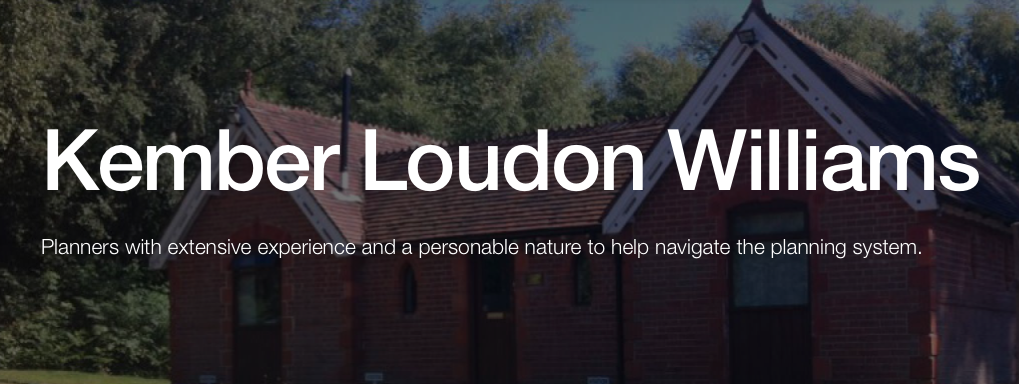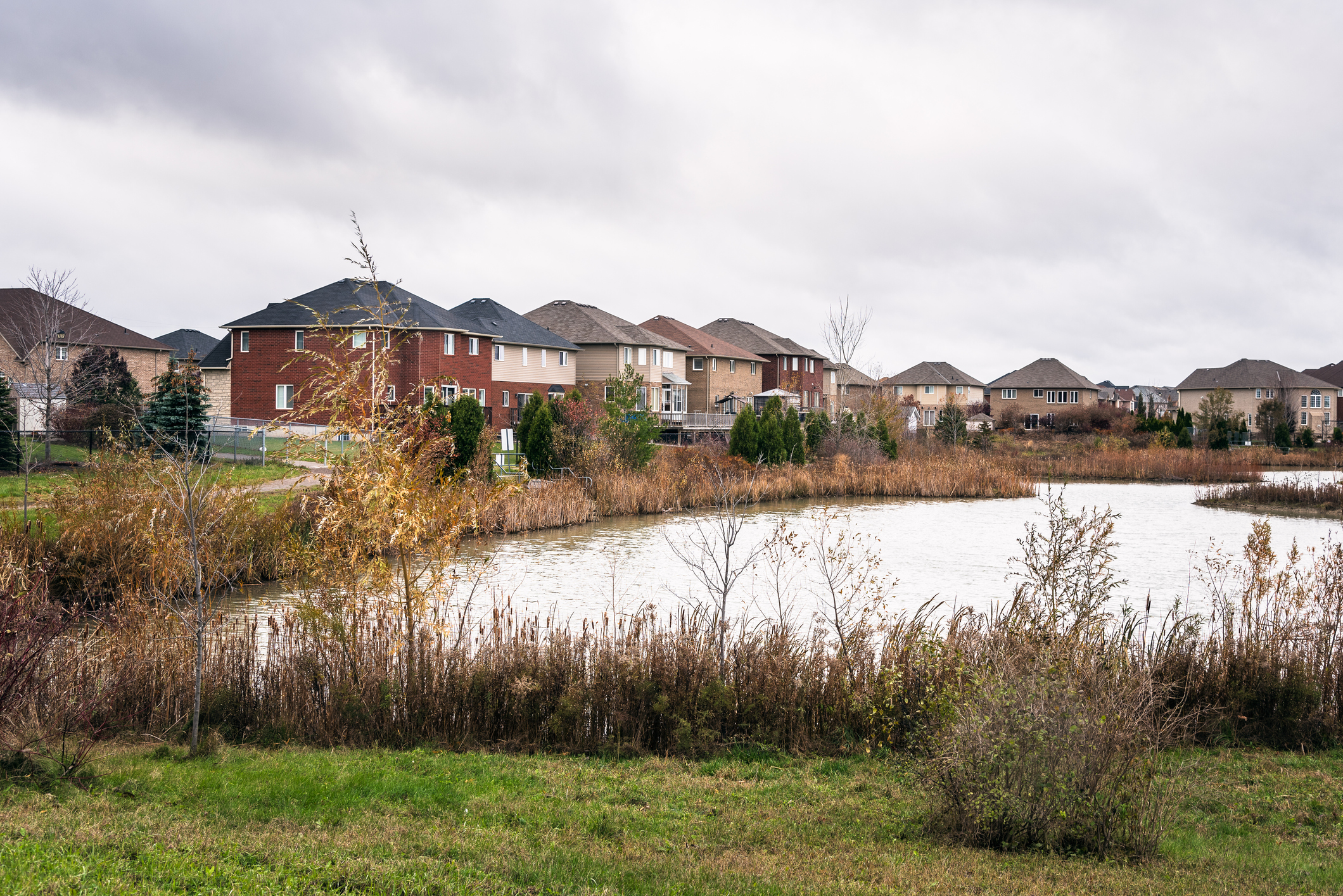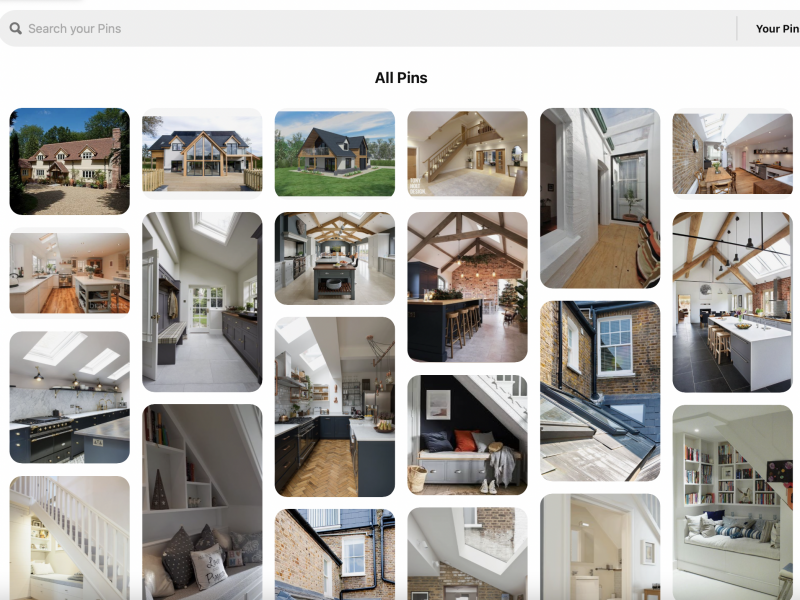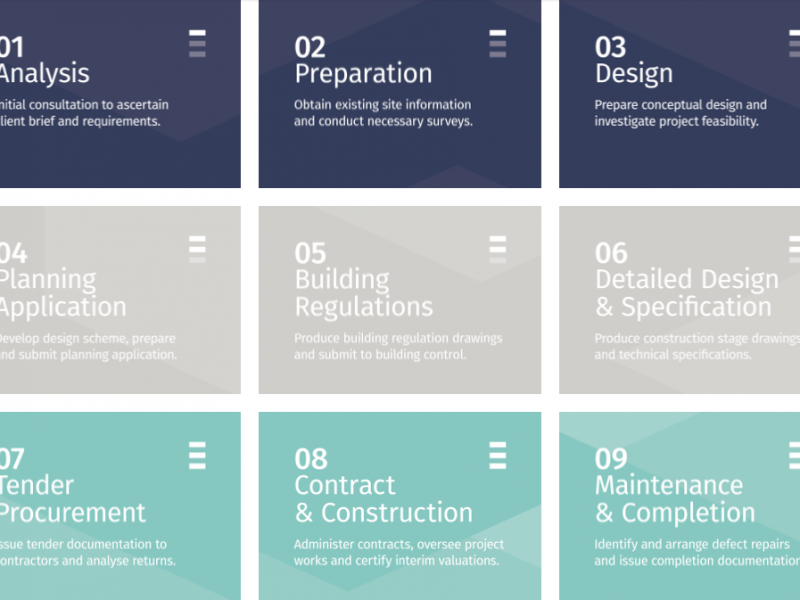
SPOTLIGHT: KLW Independent Planning Consultants
In last week’s article we covered ‘Identifying the Project Team’, within which one of the aforementioned was an independent planning consultant. If the nature of your project is relatively straight forward, typical in size and design for the property type and area, then it may not be necessary to include an independent planning consultant. However in some cases, such as those extensions involving particularly large volume increases, pushing design boundaries, new dwellings and proposals sited within or close to a designated area, i.e conservation, can benefit greatly from the input of a planning consultant. Their services can be utilised both during the early design and investigative stages, in order to decide on the viability of a project, as well as during the application stage itself, offering supporting planning documentation to give your application the best chance of approval.

Enter Kember Loudon Williams LLP
I am often asked what benefits a dedicated planning consultant adds to the process of achieving consent for new development. We do not design buildings like an architect and we are not engineers, like a highway consultant or an ecologist, yet we add an additional level of experience to a project.
My response is always the same; we argue on the margins and give the best possible chance to gain consent for projects and proposals that push the limits of what is acceptable, rather than sitting comfortably within them. We do this because we understand how the local authority deals with applications (many of us are former Council planners) and use our local knowledge to do our best to gain that little bit extra that we know would make the world of difference to you and your family, whether it be an extra bedroom, a larger garage or a whole new house.

Contrary to belief, we do not do this for greed or financial reward, but instead for the professional satisfaction and knowledge that we have helped somebody to realise their ambition and achieve the best possible outcome available.
Sadly, 90% of the projects we become involved with come to us because the initial stages of the planning process have gone wrong. This is usually due to flaws within the planning arguments or because the documents/drawings presented to the local planning authority are not quite right. Often this is through no fault of the person who has prepared them; instead it is more often than not a result of the ever-evolving planning system, which changes on a day-to-day basis. For example, what layperson really understands the implications of trying to build within 7km of the Ashdown Forest, the need to ‘preserve or enhance’ the setting of a Conservation Area or the relevance of whether the Local Authority has an adequate supply of housing land? Yet these are the sorts of important issues that we deal with on a daily basis and have a major impact upon whether a planning application succeeds or fails.
So my advice is simple, if you are considering investing in your property/land in a way that will result in the need to submit a planning application, give a planning consultancy a call and chat through the project with them at the early stages. The chances are if it is a small-scale proposal you may not need us. However, like any situation in life, if there are local issues that are likely to be problematic, it is better and more cost effective to identify them and deal with them early on in the process.
Of course, we cannot guarantee a 100% success rate, but we will always do our very best to give you a clear steer or whether your objective is achievable and your overall prospects for a successful outcome.
Kember Loudon Williams LLP
www.klw.co.uk
Kember Loudon Williams LLP was established in 1995 as an independent town planning consultancy operating from offices near Tunbridge Wells. With a planning staff of 8 Chartered Town Planners and a team of technical support staff we offer our clients a high quality planning, urban design and environmental service.

Top Tips
- Consult your neighbours – if your proposed extension or new build property can be seen by your neighbours, or you feel that it could affect them in any way, then it is advisable (where possible) to inform them of your intentions during early design stages. Apart from it being a matter of courtesy, in some cases they may have some valuable views or opinions on the design, which you may wish to consider. They may have even been thinking of a similar project themselves, where there may be some scope to design in union to achieve a consistent aesthetic. In any case, the feeling of inclusion at the very least will go some way towards reducing the likelihood of objections during the planning application.
- Check what you need to submit – together with your project team, understand the validation requirements for the type of planning application you are intending on submitting. There are various application forms for different kinds of planning application, each of which, have their own requirements for the supplying of documentation and this too can vary between each local authority. It is important to select the correct form type, complete it appropriately and submit the required drawings and supporting reports where necessary, in order to avoid any unnecessary delay.

- Get surveys and reports done in time – some planning applications, as a result of the application sites locality to the natural environment, may require ecological surveys. Many of these can only be carried out during spring. In addition some of these surveys, such as bat surveys, only remain valid for a set amount of time, so this should be factored into your process and carried out at the appropriate time, in order to avoid reports expiring and needing to be produced more than once.
- Maintain dialogue with the case officer – in most cases this will be taken care of by your Architect/Designer/Management Consultant, or when appointed, the planning consultant. Once the planning application has been validated by the local authority, it will be assigned a case officer who will be responsible for visiting site, compiling responses from neighbours, the parish council, highways and heritage etc where applicable and preparing their report at the end of the consultation period, for refusal or approval. Instigating and maintaining dialogue with the case officer will ensure that any concerns can be discovered and addressed as early on as possible, reducing the likelihood of delays during the determination process.




